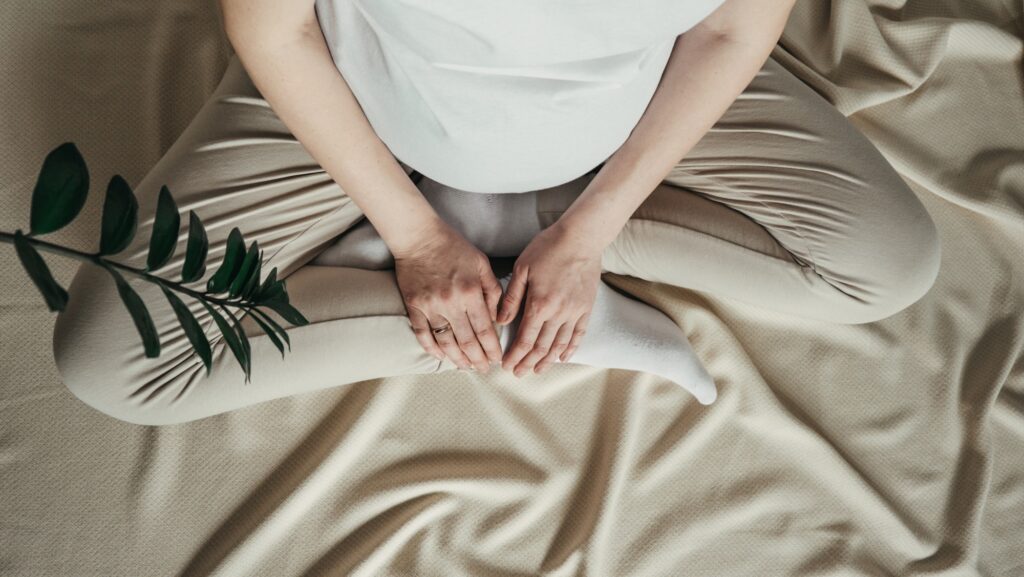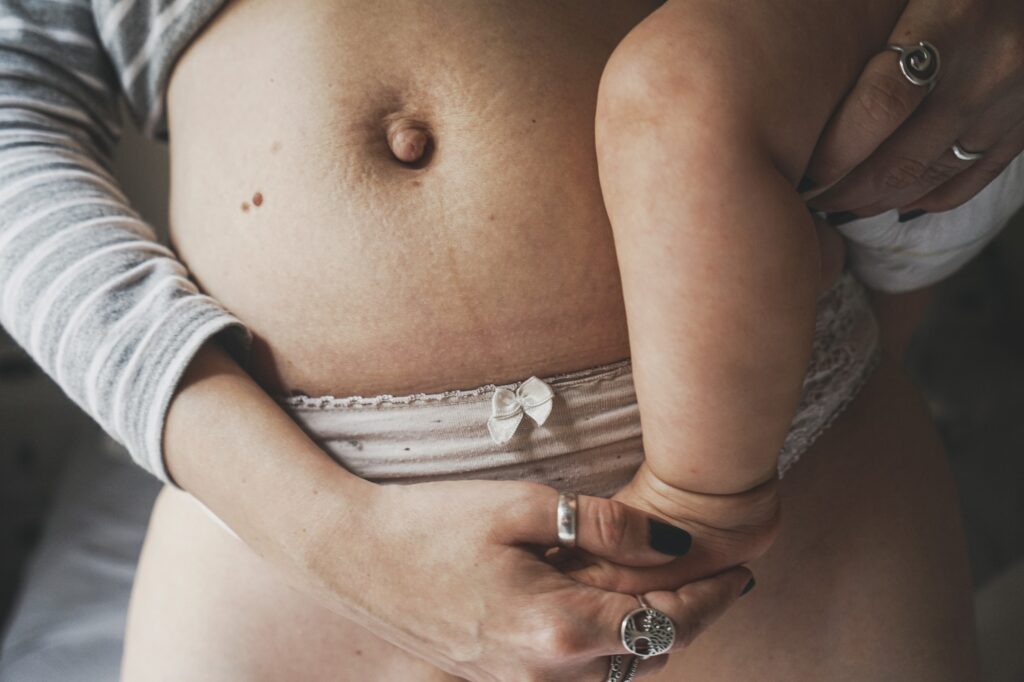You expected the precious gift of baby, but not all the post-birth changes to your body are so-called “gifts”. Good news first- some of these changes won’t stick around forever! Bad news- some will hang on like a fly at a barbeque. It is important to understand the A to Z of the most common symptoms and changes mom’s report during the fourth trimester and first year. Remember, be forgiving of these changes as they derive from the beautiful process of childbearing and birth.
1. Breast Engorgement: In the days and weeks after you deliver, most mothers begin to welcome their supply of milk. Whether you choose to breastfeed or not, engorgement can occur with firm, swollen, rock-hard breasts that are uncomfortable in bras, without bras, sleeping, and awake. They are often warm to touch, can be lumpy, and heavy.
Try these tips for treatment, but if a fever presents, contact your doctor immediately.
- Place a warm compress on breasts, and alternate with cold to relieve pain and swelling;
- Feed baby to drain supply and/or pump for relief
- Perform hand expressions taught by a trusted lactation consultant for relief of any lumps.
Good news! Engorgement does not stick with you forever.
2. Postpartum Contractions: Yes, more contractions. New mom’s report that contractions are prevalent in the fourth trimester in weeks two – four postpartum. Contractions are common and normal, so welcome this symptom as a sign of recovery! These come on as the uterus shrinks to its original size, and also appear while breastfeeding or pumping because of the hormone, Oxytocin, which is released when producing milk.
To help with the pain and sensation of contractions:
- Deep breathing. When a contraction starts, begin a 4-count breathe pattern.
- Heating pad on area of discomfort
- Warm bath. This is a go-to while laboring, and can also provide much relief postpartum!
Good news again! Contractions are temporary. But if they do persist and become unbearably sharp in pain, or bring on a fever, consult your doctor.
3.Hemorrhoids: TMI, I’ll never forget texting my husband that I had hemorrhoids again, only to see my “mommy brain” struck and I text our extended family group chat! Did I mention that it was his side of the family?
Hemorrhoids are not a postpartum symptom to be overlooked! These pea to grape sized swollen veins are due to the pressure on the rectum, extra weight on the pelvis, and in turn swelling of the veins occurs and the gift of hemorrhoids. Painful and uncomfortable along with the first bowel movements, hemorrhoids are common in pregnancy and thereafter as you recover and as hormones balance. Though hemorrhoids are mostly common in the perineal period, they can present again due to dehydration, constipation, weight gain, and lack of movement.
To help with hemorrhoids:
- Stay hydrated,
- Exercise safely,
- Maintain a nutrient-rich diet.
- Avoid straining with bowel movements.
Good-ish news: These should dissipate in recovery, but maintain a healthy recovery to avoid in the future. If bowel movements remain painful or difficult, contact us. We are here to help!
4. Urinary Incontinence: Oof. I will alert you now, many mothers report that bladder leakage is one of the symptoms that doesn’t float away with time. Your pelvic floor just underwent a major delivery and the muscles are in recovery. In addition, your uterus is contracting, and that compresses on your bladder. (That’s why we offer “Your Best Birth” to help keep you strong and prepared for delivery)
Instead, “leaking” just becomes more annoying as you want to return to your pre-pregnancy hobbies like chasing your kids at the park, attending a workout class, or even laughing! A leaky bladder is unfortunately a leaky you. We encourage you to schedule some “Self-Care” for urinary incontinence with a Pelvic Floor Specialist to learn safe and effective exercises to get you back doing the things you love, without the discomfort or uncomfortable wetness.
The tea: Urinary Incontinence has become so normalized, many women believe this symptom is here to stay part of their day-to-day. It surely doesn’t have to be!
At Thrive, we offer in person and virtual appointments to help stop the leaks. To make an appointment click here.
5. Lower Back Pain: In full transparency, pain in the lower back, hips, and joints, most-only lessens with how gracious you are to your body. As a former athlete I arrived at my own conclusion that my achy back and needing-to-be stretched nightly hips were symptoms of competitive sports. Surely that is part of the story, but lest I forget two births on top of the daily tasks I perform at the computer, kitchen sink, or consoling a toddler in my arms after a fall, are the other major part!
Wherever it derives, if your body were like a car, the engine light would be on! Your postpartum body is desperate for strength and stretches to maintain tasks new and old, but also to do so in a safe and healing recovery process.
Try this exercise for lower back pain and achy hips:
Tail-bone figure eight’s.
- Get into a table-top position with your hands under your shoulders and knees directly under your hips, keep a straight spine while you draw imaginary circles with your tailbone and move hips side-to-side like you are tracing an 8 to your ceiling.
Like urinary incontinence, aches and pains are normalized symptoms. We don’t sign-off on that notion, and neither should you! Live pain free and just enjoy that new baby!






